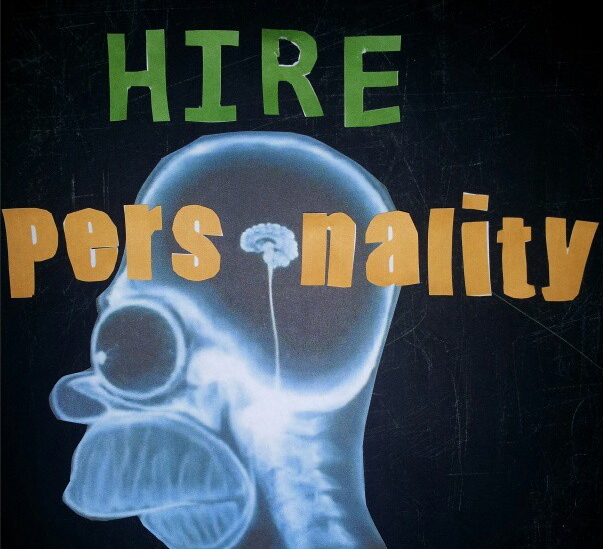Traditional hiring practices tell us that professional experience is one of the most important assets when determining which candidates are the best your organizational needs. Experience, education and overall presentation are the most attractive traits to an employer. But where does personality fall in the list of valuable skills?
You may be surprised but more and more hiring assessments are proclaiming personality is the most valuable skill. Assessment tools are used to determine what makes the best candidate for a desired position. You’ve probably taken a Myers Briggs personality test at some point in your career. The results or data from these types of tests helps an employer determine if a candidate is a good fit or crazier than Kat Williams.
 The traditional difference between personality and skill is that skills can be taught and personality can’t. While personalities do evolve over time, I see it as, you either have a great personality or you don’t. Why is a great personality so important? Let’s take a quick a poll! Who wants to work with someone who is difficult to communicate with, defensive minded and rude? Anyone? Didn’t think so! One of the main reason people quit their jobs is because conflict with co-workers, so that makes “fit” imperative to organization success.
The traditional difference between personality and skill is that skills can be taught and personality can’t. While personalities do evolve over time, I see it as, you either have a great personality or you don’t. Why is a great personality so important? Let’s take a quick a poll! Who wants to work with someone who is difficult to communicate with, defensive minded and rude? Anyone? Didn’t think so! One of the main reason people quit their jobs is because conflict with co-workers, so that makes “fit” imperative to organization success.
Many jobs require a team dynamic – working together; cross trained to perform multiple duties are common. There is a shift to service –we are learning that companies that provide great customer service excel over companies that don’t. This is important because hiring managers are looking for good personalities to work in their cross-functional teams to interact with internal and external customers.
So here’s a few more examples of how hiring for personality can help you.
- Increased hiring efficiency – Employees that fit in well from an attitude perspective are more likely to stick around for a while. A lower turnover ratio means your hiring process is working quite well.
- Reduced negative attrition – This is closely related to turnover but slightly different, because some attrition is good. Yes, from a business standpoint you want positive movement in your organization, you know promotions and growth. However you don’t want to lose the good people – only the bad hires, so when you have a close knit team which has opportunities to advance, you have happy engaged employees.
- ROI – The decisions to hire new staff is a costly one, and every company hopes that a new employee will fit in with the company so they can reap a return on investment. Remember we’re talking training, compensation and benefits.
It’s simple:
good workers = good teams;
good teams = good products;
good products + good service = customer loyality, great word of mouth and more market share.
 Chris Fields is an HR professional and leadership guy who blogs and dispenses great (not just good) advice at Cost of Work. Connect with Chris via email at [email protected].
Chris Fields is an HR professional and leadership guy who blogs and dispenses great (not just good) advice at Cost of Work. Connect with Chris via email at [email protected].











